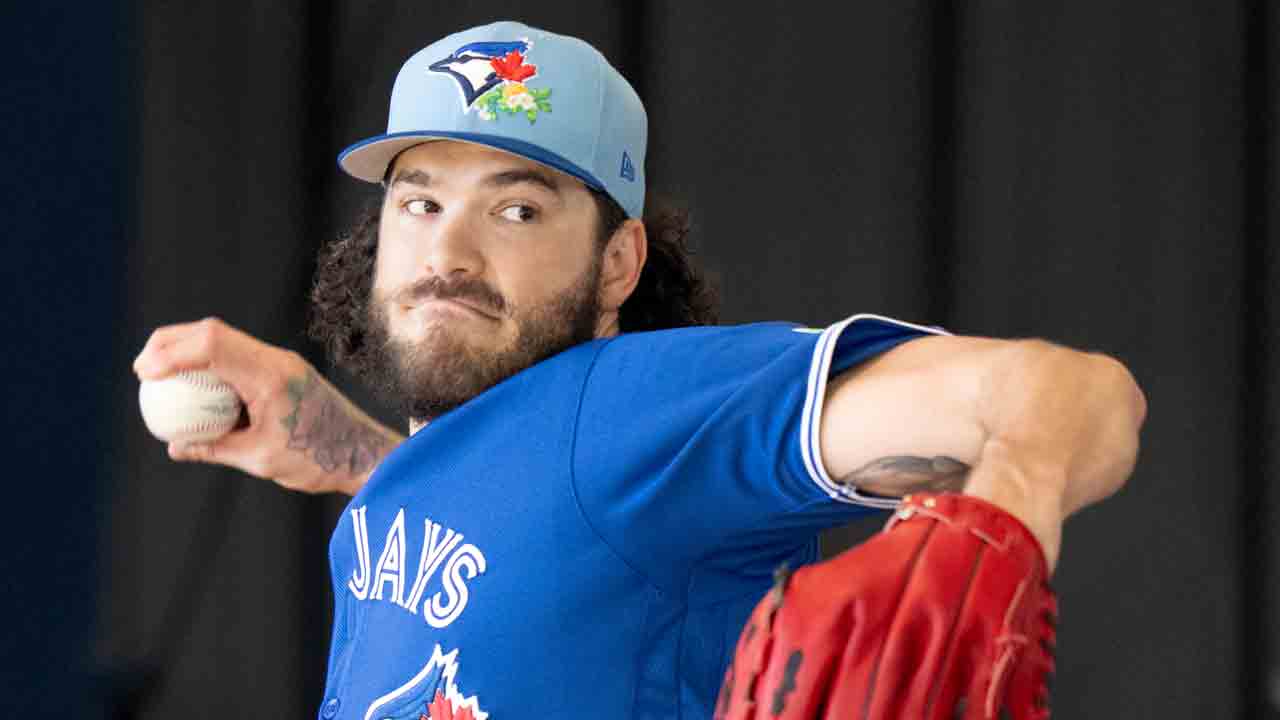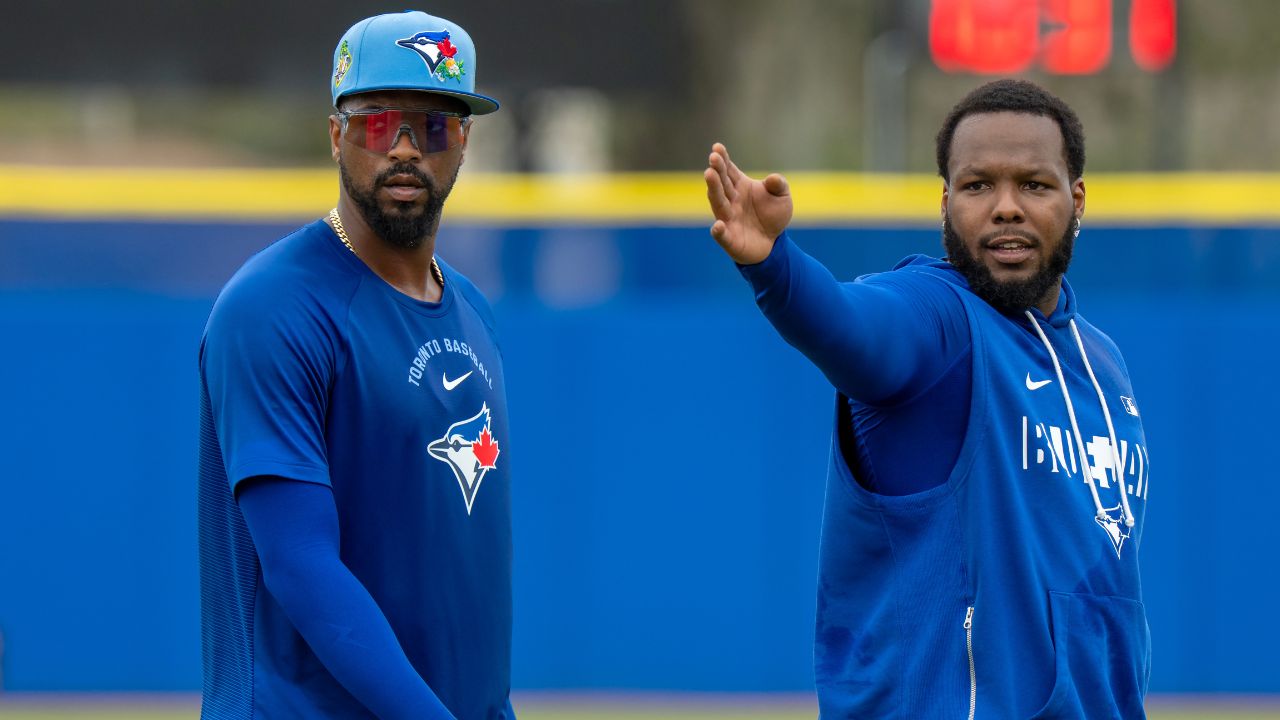
TORONTO – The new outfield at the renovated Rogers Centre, complete with walls that are both angled and of varying heights, is going to play vastly different than the old cookie-cutter fence.
That much was clear Tuesday morning when the Toronto Blue Jays opened up the dome for a media tour, even as the club continued to keep their new field dimensions private for the time being.
The place remains an active construction site, with work ongoing on the first phase of a plan that includes a total reset of the lower level next off-season, and perhaps further construction the winter after that, too.
Amid the action, outlines can be seen of outfield stands that will serve as a “social district” for fans with four distinct neighbourhoods, said Anuk Karunaratne, the club’s executive vice-president of business operations. New for 2023 will be a rooftop bar, lounge/patio spaces surrounding elevated bullpens and different seating options including bleachers.
The 500 level is also being retrofitted with wider seats, which combined with some new outfield cutouts is decreasing seated capacity by about seven per cent from 44,750 in 2022 to roughly 41,500.
All should improve the fan experience.
Baseball-wise, though, nothing is as relevant as the outfield wall, and in tracing a very rough path for it based on construction to this point, it adds another layer of explanation to the club’s emphasis on outfield defence in its off-season work.
For instance, follow the wall to the right and left field corners in the pics below and imagine the potential for chaos on balls bouncing off the fence.
Most dramatic will be the walls in the corners in front of the elevated bullpens, which will be substantially higher than the familiar 10-foot symmetrical fence, an estimated 15 feet tall, give or take. The corners also seem to have been brought forth a bit, maybe to 320 feet from the original 328.
Fans will now be atop both bullpens, with clear views of the relievers as they warm. Each bullpen will have two levels, so relievers can catch shade or do their warm-up exercises beneath the mounds.
The wall dips in height from the alleys to centre field, but that’s not in place yet so it’s harder to visualize and estimate dimensions, although it looks like it could end up bigger.
The seating in those areas will be extended right down to the edge of the wall, so no homer can end up in the service level any longer, and there will also be a new batting eye in centre with a bar in the stands behind it.
Any way you cut it, the corner outfielders will have to be judicious about how they chase balls over their heads given the possibility for wild deflections off the wall. New centre-fielder Kevin Kiermaier, in particular, will have his hands full backing up plays to either side of him.
Incoming rules limiting shifts were already going to put more demands on outfield defence but the Blue Jays surely factored in their new dimensions when they signed Kiermaier and traded for Daulton Varsho, while parting with Teoscar Hernandez and Lourdes Gurriel Jr.
Even as the Blue Jays tried to neutralize the impact on offence from the fence changes – raising wall height in the corners to compensate, for instance – the new outfield further incentivized having strong outfield defenders, something they already identified as an area of opportunity.
“When you look at the way we’ve been constructed over the past couple of years, we had no problem scoring runs,” manager John Schneider said during a Jan. 6 interview with Ben Ennis and me on Sportsnet 590 The Fan.
“Some of it came in spurts and you’d look up at the end of the year and the numbers are what they are as a group offensively, OPS, runs, all that kind of stuff, so kind of pivoting, all right, where are the other areas we can continue to get better at, defence and baserunning jump to the top of my mind when you look at the way we play.
“If it means sacrificing some production, then OK, I get where people see that. But being around the game as long as I have and as long collectively as we have as a staff, when you’re talking about pitching and defence and how much that can change the momentum of a game, momentum of a series or even a couple weeks in a season, that jumps to everyone’s forefront.”
Last season, the Blue Jays ranked 18th in the majors with an Outs Above Average (OAA) of minus-3 and a runs prevented of minus-2 in the outfield. Varsho led all big-league outfielders with an OAA of 18 while Kiermaier, even on a bad hip that truncated his season, was plus-1.
“With the way guys are hitting the ball these days, and the game will ebb and flow back to maybe a different style of hitting, but so many balls are hit in the air, we’re trying to really convert those into outs as much as we can,” said Schneider. “We think having a really strong outfield defence is going to be an absolute must with everything that the game is going to be adjusting to.”
Not to mention a renovated home field that makes it all the more necessary, too.
Editor’s Note: One of the 30 MLB teams, the Toronto Blue Jays, is owned by Rogers Communications Inc., which also owns Sportsnet.













